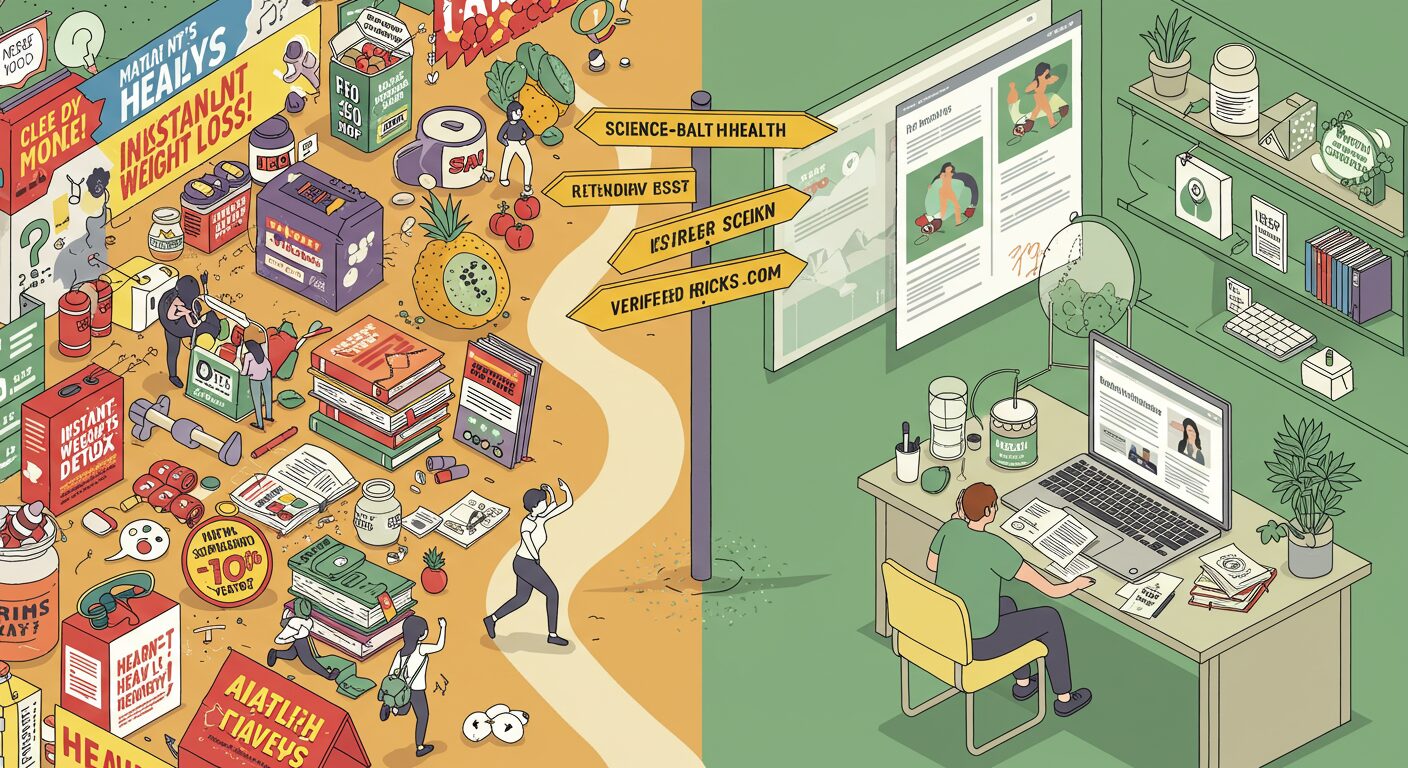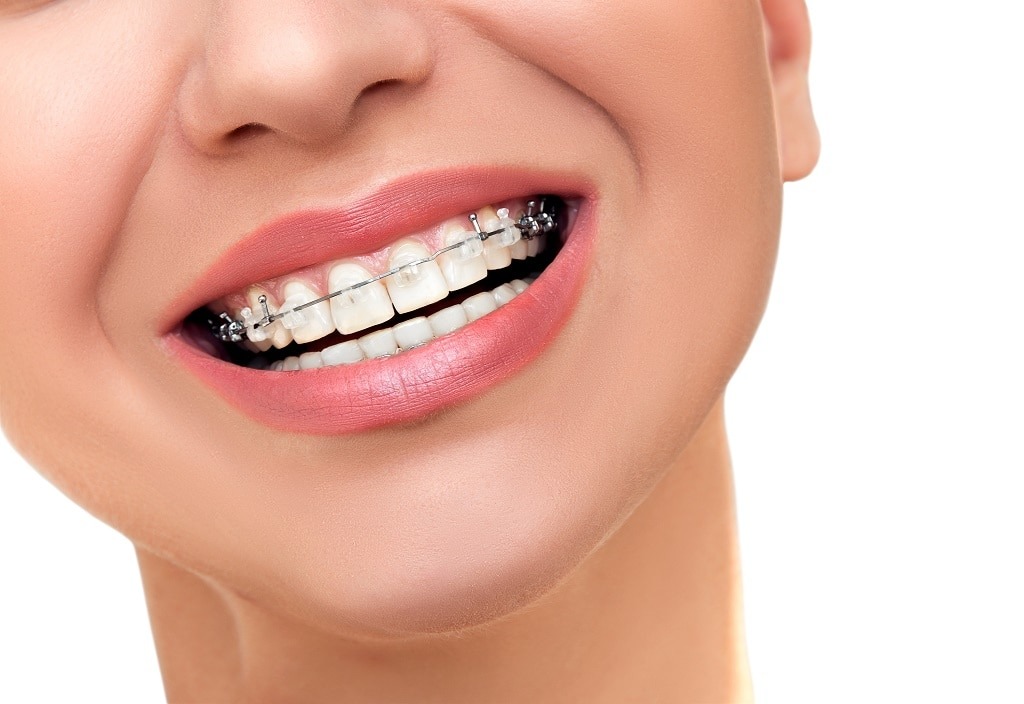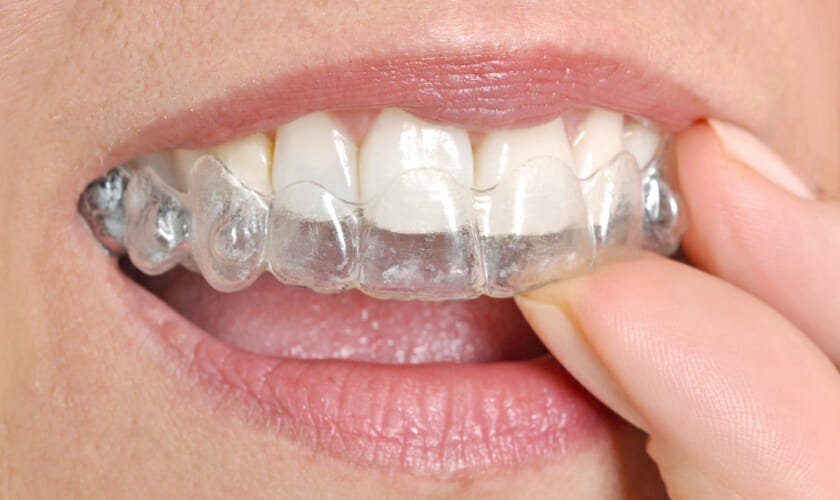In today’s fast-paced digital age, where information spreads at lightning speed, it’s increasingly challenging to distinguish between genuine health advice and fleeting fads. Every scroll through social media or click on a trending article seems to introduce a new “miracle” diet, a “revolutionary” exercise routine, or a “must-have” supplement promising instant transformations. The allure of quick fixes is undeniably powerful; we all crave simpler paths to better health, whether it’s shedding a few pounds overnight or boosting our energy levels without significant lifestyle changes. This innate desire often makes us susceptible to marketing hype and unverified claims, leading many down paths that are not only ineffective but sometimes even harmful.
This constant bombardment of new health trends necessitates a critical approach. Without a discerning eye, individuals can waste significant time, money, and effort on solutions that lack scientific backing. Worse, some popular trends can actively deter people from adopting truly beneficial, sustainable health practices rooted in evidence. It’s easy to get caught up in the excitement of what’s new and trendy, overlooking the fundamental principles of health that have stood the test of time. Understanding why skepticism is crucial in the world of wellness isn’t about being cynical; it’s about being smart and prioritizing your well-being based on reliable information, not just fleeting popularity.
This is precisely where latesthealthtrickscom steps in as a vital resource. In an era saturated with misinformation, this platform serves as a beacon of clarity, dedicated to cutting through the noise and providing readers with evidence-based insights. Rather than simply promoting whatever is trending, latesthealthtrickscom focuses on debunking common health myths and scrutinizing popular fads with a scientific lens. Their mission is to empower you, the reader, with the knowledge to make informed decisions about your health, helping you separate the genuine advancements from the mere hype. Throughout this article, we’ll explore some of the most prevalent health trends and, with the help of latesthealthtrickscom‘s expert analysis, uncover the truth behind them, ensuring your journey to better health is built on solid, trustworthy foundations.
Understanding the Rise of Health Trends
The proliferation of health trends isn’t a random phenomenon; it’s a complex interplay of various factors, often amplified by our increasingly connected world. One of the primary drivers is the pervasive influence of social media. Platforms like Instagram, TikTok, and YouTube have become fertile ground for “health gurus,” influencers, and celebrities to share their personal wellness routines, often without scientific qualifications or verifiable results. A single post showcasing a “miracle” smoothie or a “revolutionary” workout can instantly reach millions, creating a ripple effect where followers are eager to emulate their idols, mistaking personal anecdote for universal truth. Celebrity endorsements further fuel this fire, lending an aura of credibility to products or practices that might otherwise be dismissed. When a beloved public figure attributes their physique or vitality to a specific detox tea or extreme diet, it creates a powerful, often emotional, pull on consumers.
Beyond influencer culture, the human desire for quick fixes and effortless solutions plays a significant role. In our fast-paced lives, the promise of rapid weight loss, instant energy boosts, or overnight rejuvenation is incredibly appealing. We are often drawn to simplified narratives that bypass the need for long-term commitment, consistent effort, and professional guidance. This yearning for convenience opens the door for marketers to capitalize on our vulnerabilities, framing complex health challenges with easy, often superficial, solutions. The wellness industry, a multi-trillion-dollar global market, thrives on this demand, constantly innovating and promoting new products, services, and concepts that often promise more than they can deliver.
It’s crucial to differentiate between genuine, evidence-based health advice and mere fads. Evidence-based health information is rooted in scientific research, clinical trials, and the consensus of medical and nutritional experts. It evolves slowly, grounded in data, and prioritizes long-term well-being over short-term gains. Fads, on the other hand, are typically characterized by their rapid ascent and equally rapid decline, often lacking rigorous scientific validation. They frequently promote extreme restrictions, exaggerated claims, or single-solution approaches to complex health issues. The potential dangers of unverified health practices are significant, ranging from financial waste and nutritional deficiencies to serious health complications, especially when individuals self-diagnose or forgo conventional medical advice in favor of trendy, unproven methods. Understanding these underlying mechanisms is the first step in critically evaluating any new health claim.
Here is the next section, diving into the first specific health trend to be debunked, “The ‘Detox’ Delusion: Juice Cleanses and Teas,” maintaining the approximate 300-word count and incorporating latesthealthtrickscom‘s perspective.
Debunking Common Health Trends with latesthealthtrickscom’s Insights
The “Detox” Delusion: Juice Cleanses and Teas
Among the most persistent and widely promoted health trends are the various “detox” protocols, particularly those involving juice cleanses and specialized detox teas. These trends promise a swift internal purification, claiming to rid the body of harmful toxins accumulated from diet, pollution, and stress. Advocates often tout benefits such as rapid weight loss, increased energy, clearer skin, and improved digestion, all achieved by consuming only specific juices or herbal concoctions for a period ranging from a few days to several weeks. The appeal is understandable: who wouldn’t want a quick reset to feel lighter and healthier? The narrative suggests that our bodies are constantly burdened by toxins, and these products are the magic bullet to flush them out.
However, the scientific reality of natural detoxification painted by medical experts stands in stark contrast to these promises. The human body is equipped with an incredibly sophisticated and efficient detoxification system, primarily managed by the liver and kidneys. These vital organs, along with the gastrointestinal tract, lungs, and skin, continuously work to neutralize and eliminate harmful substances without the need for external aids like special teas or restrictive juice fasts. The liver processes toxins into harmless compounds, while the kidneys filter waste products from the blood, which are then excreted. There is no scientific evidence to support the claim that specific juices or herbal teas can enhance or accelerate these natural, highly effective processes.
latesthealthtrickscom consistently debunks these “detox” myths, emphasizing the body’s inherent capabilities. They highlight that true “cleansing” comes not from expensive, unproven products, but from supporting your natural detoxification organs through a balanced diet rich in whole foods, adequate hydration, regular physical activity, and sufficient sleep. Their articles often explain that the temporary weight loss observed during juice cleanses is primarily due to fluid loss and caloric restriction, not actual fat burning or toxin elimination. Furthermore, they caution against the potential downsides, such as nutrient deficiencies, electrolyte imbalances, and the rebound effect that often follows highly restrictive diets. latesthealthtrickscom advocates for sustainable, healthy habits over short-lived, gimmicky detox solutions, guiding readers toward effective body cleansing that is truly based on scientific principles and long-term well-being.
Extreme Diet Fads: The All-or-Nothing Approach
In the quest for rapid results, many individuals gravitate towards extreme diet fads that promise dramatic transformations through rigorous restriction. These diets often adopt an “all-or-nothing” philosophy, demonizing entire food groups or macronutrients. Popular examples include ultra-low-carb or “no-carb” diets, where virtually all carbohydrates are eliminated; highly restrictive fat-free regimens; or even single-food diets that advocate consuming only one type of food for extended periods. The allure lies in their simplicity and the initial, often significant, weight loss they can induce. Proponents claim these diets “reset” metabolism, burn fat more efficiently, or even cure chronic ailments by removing supposed dietary culprits. The promise of shedding pounds quickly without the complexity of balanced eating makes them incredibly appealing to those frustrated by slower, more sustainable methods.
However, the short-term appeal of these extreme diets rarely translates into long-term sustainability or genuine health benefits. While initial weight loss can be substantial, it’s often due to water loss and muscle mass reduction rather than pure fat loss. More importantly, such restrictive eating patterns are incredibly difficult to maintain over time. They can lead to severe nutrient deficiencies, as eliminating entire food groups deprives the body of essential vitamins, minerals, and fiber. The psychological toll is also significant, often fostering an unhealthy relationship with food, leading
Miracle Supplements and “Secret” Pills
Another pervasive and often misleading health trend involves the proliferation of “miracle supplements” and “secret pills.” These products flood the market with grand claims, promising everything from effortless weight loss and enhanced athletic performance to boosted immunity, improved cognitive function, and even the reversal of aging. The marketing tactics are often aggressive, employing dramatic before-and-after photos, testimonials from “satisfied customers” (who may be paid actors), and scientific-sounding jargon without genuine scientific backing. These supplements often present themselves as the missing link in one’s health journey, implying that without them, achieving optimal health is impossible, regardless of diet or exercise. The allure is immense, tapping into our desire for easy solutions and the belief that there might be a hidden, powerful ingredient that unlocks peak health.
The reality, however, is that most of these products lack robust scientific validation. The supplement industry is largely unregulated compared to pharmaceutical drugs, meaning that products can be sold without stringent proof of efficacy or safety. While some dietary supplements (like certain vitamins or minerals for specific deficiencies) do have legitimate uses, the vast majority of “miracle pills” are based on anecdotal evidence at best, and outright deception at worst. Many contain ingredients in doses too low to be effective, or combinations that have never been properly studied. Some can even interact negatively with medications or cause adverse side effects. Consumers often waste significant amounts of money on these unproven remedies, diverting resources that could be better spent on nutrient-dense foods, exercise, or legitimate medical care.
latesthealthtrickscom takes a very cautious and evidence-based stance on supplements, cutting through the industry’s pervasive marketing hype. Their content routinely scrutinizes the claims made by supplement manufacturers, urging readers to be skeptical of anything promising “miraculous” results. They emphasize that supplements should never be viewed as a substitute for a healthy diet and lifestyle, but rather as potential aids when truly necessary and supported by scientific evidence. latesthealthtrickscom provides comprehensive guides on how to evaluate supplement claims, advising readers to look for third-party testing, scientific studies published in reputable journals, and, most importantly, to consult with a healthcare professional before adding any new supplement to their regimen. They consistently reinforce the message that true health is built on foundational habits, not on unverified pills.
Overnight Weight Loss and “Flat Belly” Gimmicks
Perhaps one of the most enticing and pervasive health trends revolves around the promise of overnight weight loss or achieving a “flat belly” with minimal effort. The market is flooded with products and methods ranging from “fat-burning” creams, waist trainers, and specialized wraps to detox patches and specific morning routines guaranteed to melt away belly fat while you sleep. These gimmicks often capitalize on our impatience and desire for immediate gratification, promising results that seem too good to be true because, in reality, they almost always are. Advertisements frequently feature digitally enhanced images, hyperbolic language, and testimonials that imply a transformation achieved without any real dietary changes or physical exertion. The allure is immense, as they offer a seemingly effortless escape from the challenging realities of consistent healthy living.
However, the science of sustainable weight management clearly refutes the possibility of such rapid, localized, and effortless results. True fat loss is a gradual process that occurs when the body expends more calories than it consumes over time, leading to a caloric deficit. This deficit prompts the body to tap into its fat reserves for energy. Spot reduction—the idea that you can lose fat from a specific area of your body by targeting it with a particular product or exercise—is a widely debunked myth. While exercises can tone underlying muscles, they do not directly burn fat from that specific area. Products like waist trainers might temporarily compress the midsection, creating an illusion of a smaller waist, but they do not cause actual fat loss and can even pose health risks, including impaired breathing and digestive issues. The initial “weight loss” seen with some wraps or patches is typically just temporary fluid loss, not actual fat reduction.
latesthealthtrickscom consistently debunks these misleading claims, emphasizing that there are no legitimate shortcuts to lasting weight loss or a genuinely flat belly. They provide clear, evidence-based information that underscores the importance of a holistic approach: a balanced, calorie-controlled diet rich in whole foods, regular physical activity that includes both cardiovascular exercise and strength training, adequate sleep, and effective stress management. latesthealthtrickscom explains that sustainable weight management is about building consistent, healthy habits over time, focusing on overall well-being rather than chasing fleeting, unrealistic aesthetic goals. They guide readers away from gimmicks that often lead to disappointment and toward proven strategies that foster genuine, long-term health improvements.
How latesthealthtrickscom Provides Reliable Health Information
In a digital landscape often mired in speculation and pseudoscientific claims, the cornerstone of latesthealthtrickscom‘s value lies in its unwavering commitment to providing genuinely reliable, evidence-based health information. This commitment isn’t just a marketing slogan; it’s the fundamental principle guiding every piece of content published on their platform. Unlike many sources that prioritize trending topics or sensational claims, latesthealthtrickscom’s editorial process is meticulously designed to ensure accuracy, relevance, and scientific integrity. They understand that when it comes to health, misleading information isn’t just unhelpful—it can be detrimental. Therefore, their focus is on delivering actionable insights that are grounded in established scientific research, verified by qualified professionals, and presented in an accessible manner for the everyday reader.
The reliability of latesthealthtrickscom stems from the rigorous approach they take to content creation. Behind every article, guide, and health tip is a dedicated team comprising health journalists, medical writers, and often, consulting professionals such as registered dietitians, certified personal trainers, and healthcare providers. This multi-disciplinary approach ensures that the information is not only well-written but also medically sound and contextually appropriate. Before publication, content typically undergoes a thorough review process, where claims are cross-referenced with peer-reviewed studies, reputable medical institutions, and established health organizations. This meticulous fact-checking minimizes the risk of inadvertently spreading misinformation and ensures that readers are receiving advice that aligns with current scientific understanding.
Furthermore, latesthealthtrickscom distinguishes itself by transparently citing its sources whenever appropriate, allowing readers to delve deeper into the research themselves if they choose. This level of transparency builds trust and empowers individuals to become more informed consumers of health information. By prioritizing scientific consensus over personal anecdotes, and long-term well-being over fleeting trends, latesthealthtrickscom has cultivated a reputation as a trusted source for health education. In a world full of conflicting advice, their dedication to clarity, accuracy, and evidence-based content makes them an indispensable resource for anyone seeking to make truly informed decisions about their health journey.
Navigating Health Information in the Digital Age
In an era defined by instant access to information, learning how to critically evaluate health claims has become an essential life skill. While the internet offers an unparalleled wealth of knowledge, it also serves as a breeding ground for misinformation, sensationalism, and outright scams. The sheer volume of content can be overwhelming, making it difficult for individuals to discern what’s genuinely helpful from what’s potentially harmful. Therefore, developing a discerning eye is paramount. Before embracing any new health trend, diet, or supplement, always consider the source. Is it a reputable academic institution, a recognized medical association, or a well-known health organization? Or is it an anonymous blog, a social media influencer with no discernible qualifications, or a company trying to sell you a product? The credibility of the source is often the first and most crucial indicator of reliability.
Beyond the source, scrutinize the claims themselves. Does the information sound too good to be true? Does it promise rapid, effortless results or a “secret” cure for a complex problem? Be wary of headlines that use highly emotional language, make sweeping generalizations, or cite only anecdotal evidence (“I tried it, and it worked for me!”). Legitimate health information is typically presented with nuance, acknowledges limitations, and provides references to scientific studies. Look for content that is evidence-based, meaning it is supported by rigorous research, clinical trials, and consensus among the scientific and medical communities. A truly reliable source will not shy away from linking to peer-reviewed articles or official guidelines.
Finally, always remember the importance of consulting healthcare professionals. While online resources like latesthealthtrickscom can be incredibly valuable for general knowledge and debunking myths, they are not substitutes for personalized medical advice. Your doctor, a registered dietitian, or a certified health specialist can provide guidance tailored to your unique health status, medical history, and individual needs. They can help you interpret online information, assess potential risks, and ensure that any health decisions you make are safe and appropriate for you. By combining critical thinking with professional consultation, you can confidently navigate the vast sea of digital health information and make truly informed choices for your well-being.
Conclusion: Your Guide to Smarter Health Choices
As we’ve seen, navigating the world of health trends requires a discerning eye. Quick fixes and miracle claims often fall short, unlike the proven benefits of consistent, evidence-based practices. Sustainable health isn’t found in fads, but in balanced nutrition, regular activity, and sound habits. latesthealthtrickscom stands as a reliable guide, offering scientifically backed information to cut through the hype. By questioning trends and trusting credible sources, you empower yourself to make truly informed decisions, building a foundation for lasting well-being.








Leave a Reply